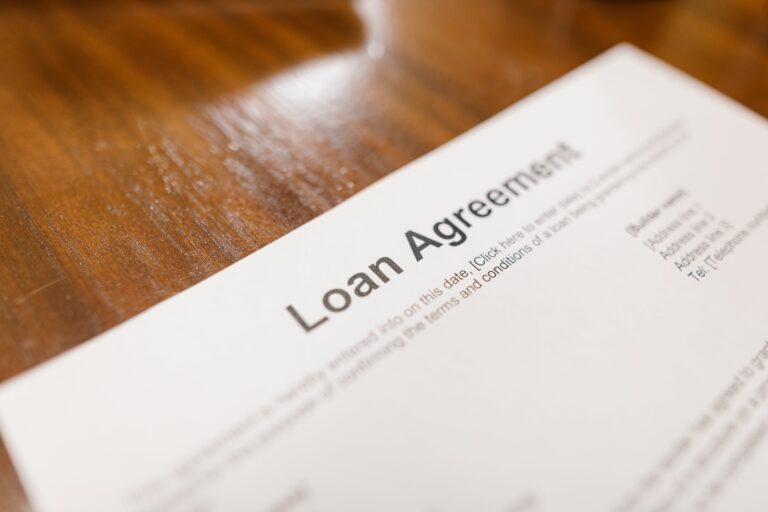Your Guide to Government-Backed Loans
Embarking on the journey of homeownership feels like stepping into a world of possibilities. But for many, the financial puzzle of purchasing a dream house can seem daunting. The good news? The government offers a helping hand through various loan programs. In this guide, we’ll explore government-backed loans, deciphering the complexities to unlock the door to your dream home.
Understanding Government-Backed Loans
Government-backed loans are designed to make homeownership more accessible by providing financial support and favorable terms. These loans are insured or guaranteed by government agencies, reducing the risk for lenders and offering better terms for borrowers.
The Trio of Government-Backed Loans
1. FHA Loans (Federal Housing Administration)
The FHA, part of the U.S. Department of Housing and Urban Development (HUD), insures FHA loans. These loans are popular for their low down payment requirement—often as low as 3.5%. This makes homeownership more attainable for those with limited funds for a down payment.
2. VA Loans (U.S. Department of Veterans Affairs)
VA loans are exclusively available to eligible veterans, active-duty service members, and surviving spouses. Backed by the VA, these loans often require no down payment and offer competitive interest rates. They stand as a token of gratitude for the service and sacrifice of our military personnel.
3. USDA Loans (U.S. Department of Agriculture)
The USDA supports rural development by offering loans to eligible individuals purchasing homes in qualifying rural areas. USDA loans often come with low-interest rates and require no down payment. These loans aim to stimulate homeownership in rural communities.
FHA Loans: Bridging the Gap for First-Time Buyers
For many first-time homebuyers, scraping together a substantial down payment can be a significant hurdle. Enter FHA loans, designed with these buyers in mind. With a down payment as low as 3.5%, FHA loans pave a more accessible path to homeownership.
How FHA Loans Work
The FHA doesn’t directly lend money but insures loans provided by FHA-approved lenders. This insurance minimizes the risk for lenders, making them more willing to extend loans to borrowers with lower credit scores or smaller down payments.
Pros and Cons of FHA Loans
While FHA loans open doors for many, it’s essential to weigh the pros and cons. The lower down payment is a definite advantage, but borrowers should be aware of mortgage insurance premiums that accompany these loans.
VA Loans: Honoring Service with Homeownership
VA loans stand as a tribute to the brave individuals who have served in the U.S. military. These loans offer unique benefits, making homeownership a reality for those who have sacrificed for our country.
Qualifying for VA Loans
To qualify for a VA loan, one must meet specific service requirements. Eligibility is determined by factors such as length of service and discharge status. Surviving spouses of eligible service members may also qualify.
Advantages of VA Loans
The standout feature of VA loans is often the ability to purchase a home with no down payment. Additionally, these loans typically have lower interest rates compared to conventional loans.
USDA Loans: Cultivating Homeownership in Rural Areas
USDA loans target rural areas, aiming to stimulate development and homeownership in these communities. If you dream of a home nestled in a quieter, rural setting, a USDA loan might be your ticket to realizing that dream.
Eligibility Criteria for USDA Loans
To qualify for a USDA loan, both the property and the borrower must meet specific criteria. The property should be in a designated rural area, and the borrower’s income should be within the set limits.
Benefits of USDA Loans
USDA loans offer competitive interest rates and, similar to VA loans, may require no down payment. This makes them an attractive option for those seeking homeownership in rural settings.
The Application Process: Navigating the Journey
Regardless of the type of government-backed loan, the application process follows a similar trajectory. Borrowers need to gather necessary documents, including proof of income, employment history, and credit information. Engaging with a knowledgeable lender can simplify the process, guiding applicants through each step.
The Crucial Role of Credit Scores
Credit scores play a pivotal role in the approval process for government-backed loans. While these loans often accommodate lower credit scores compared to conventional loans, a higher credit score can still improve the terms and interest rates offered.
Consulting the Experts: Your Trusted Mortgage Advisor
Navigating the intricacies of government-backed loans benefits from the expertise of a trusted mortgage advisor. These professionals can guide potential homebuyers through the nuances of each loan program, helping them make informed decisions aligned with their financial goals.
Unlocking Your Homeownership Journey
As you embark on the journey of homeownership, government-backed loans stand as beacons of support, illuminating a path that might have seemed challenging. Whether you’re a first-time buyer, a veteran, or dreaming of a home in rural tranquility, these loans offer tailored solutions to match your aspirations.
Remember, the key to unlocking your homeownership journey is knowledge. By understanding the options available and consulting with experts in the field, you can confidently take each step toward the door of your dream home. Government-backed loans are not just financial tools; they are keys that open doors to a brighter future filled with the joys of homeownership.






